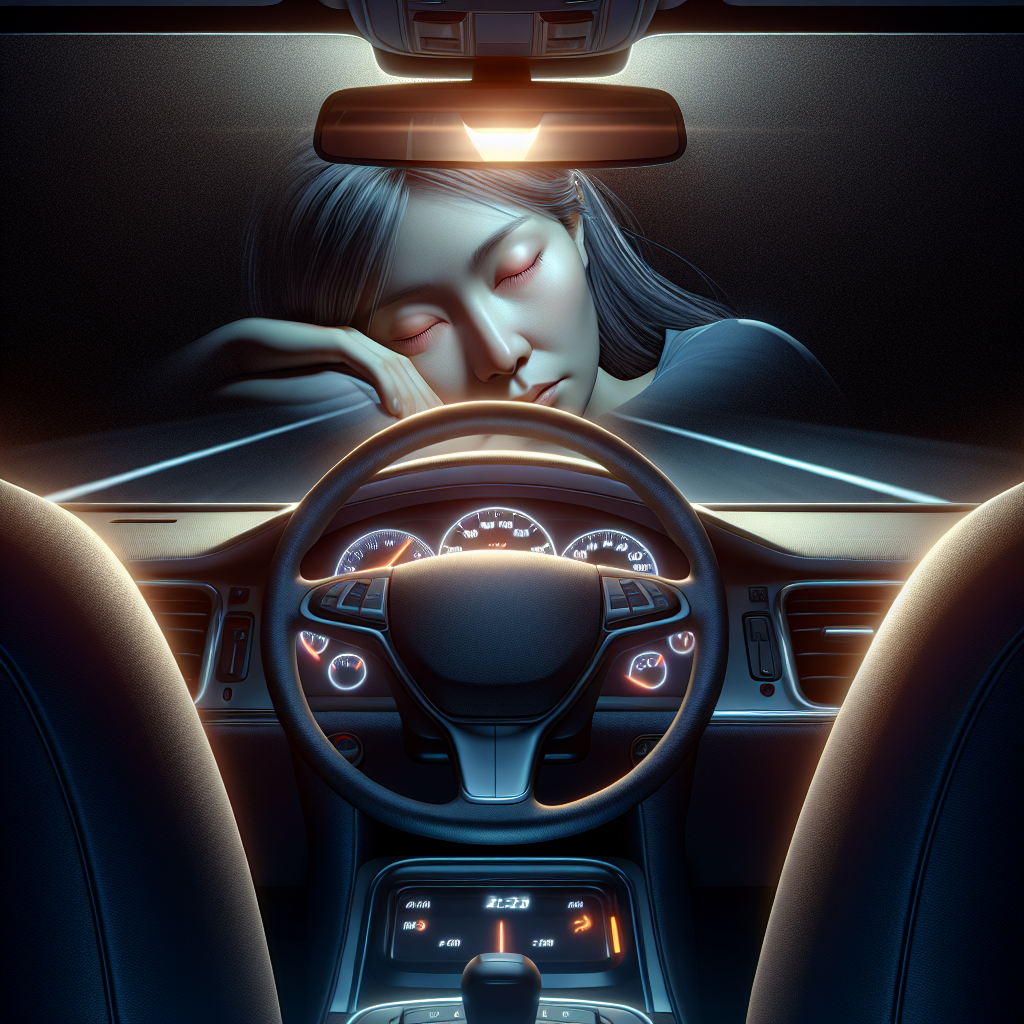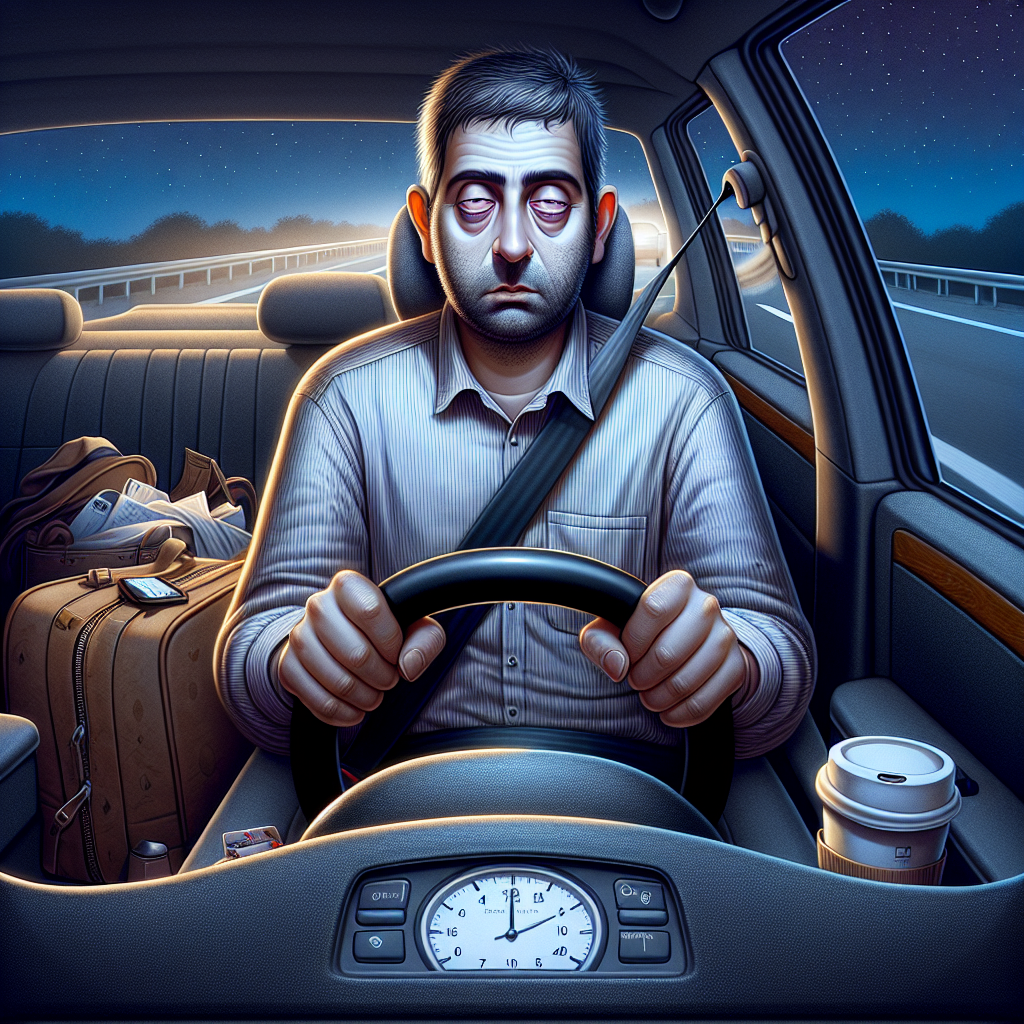-
Table of Contents
The Dangers of Drowsy Driving: Stay Awake, Stay Alive

Driving is an everyday activity for many people, but it can also be one of the most dangerous. While most drivers are aware of the risks associated with drunk driving or distracted driving, there is another danger on the roads that often goes unnoticed: drowsy driving. In this article, we will explore the dangers of drowsy driving, its causes, and the measures that can be taken to prevent it.
The Prevalence of Drowsy Driving
Drowsy driving is more common than you might think. According to the National Highway Traffic Safety Administration (NHTSA), drowsy driving is responsible for an estimated 100,000 crashes each year in the United States alone. These crashes result in approximately 1,550 deaths and 71,000 injuries. These numbers are alarming and highlight the need for increased awareness and prevention efforts.
The Causes of Drowsy Driving
There are several factors that contribute to drowsy driving. One of the main causes is a lack of sleep. Many individuals fail to get the recommended 7-9 hours of sleep per night, leading to fatigue and drowsiness during the day. Other causes include untreated sleep disorders such as sleep apnea, medications that cause drowsiness, and long work hours or night shifts.
Another factor that contributes to drowsy driving is the time of day. The majority of drowsy driving crashes occur between midnight and 6 a.m., as well as in the late afternoon. These times coincide with the body’s natural circadian rhythm, which causes a dip in alertness and an increased desire for sleep.
The Signs and Symptoms of Drowsy Driving
Recognizing the signs and symptoms of drowsy driving is crucial for preventing accidents. Some common signs include:
- Yawning and blinking frequently
- Difficulty keeping your eyes open or focused
- Nodding off or having trouble remembering the last few miles driven
- Drifting out of your lane or hitting rumble strips
- Feeling irritable or restless
If you experience any of these symptoms while driving, it is important to take immediate action to prevent an accident.
The Consequences of Drowsy Driving
The consequences of drowsy driving can be devastating. Not only are you putting your own life at risk, but you are also endangering the lives of others on the road. Drowsy driving can impair your ability to react quickly to unexpected situations, increase the likelihood of making mistakes, and decrease your overall awareness of the road.
One tragic example of the consequences of drowsy driving is the case of the comedian Tracy Morgan. In 2014, Morgan was involved in a severe accident caused by a truck driver who had been awake for more than 24 hours. The accident resulted in the death of one person and left Morgan with serious injuries. This case serves as a stark reminder of the dangers of drowsy driving and the need for stricter regulations and increased awareness.
Preventing Drowsy Driving
Fortunately, there are several measures that can be taken to prevent drowsy driving:
- Get enough sleep: Make sure to get the recommended 7-9 hours of sleep per night to ensure you are well-rested before getting behind the wheel.
- Avoid driving during high-risk times: If possible, avoid driving during the late-night or late-afternoon hours when drowsiness is more likely to occur.
- Take breaks: If you are on a long drive, make sure to take regular breaks to rest and refresh yourself.
- Share the driving: If you are traveling with someone, take turns driving to ensure that both drivers have an opportunity to rest.
- Avoid alcohol and medications: Alcohol and certain medications can increase drowsiness, so it is important to avoid them before driving.
Conclusion
Drowsy driving is a serious issue that affects thousands of lives each year. It is important for drivers to recognize the signs and symptoms of drowsiness and take appropriate measures to prevent accidents. By getting enough sleep, avoiding high-risk times, and taking breaks when needed, we can all contribute to safer roads and reduce the number of drowsy driving crashes. Remember, staying awake behind the wheel is not just a matter of convenience, it is a matter of life and death.



